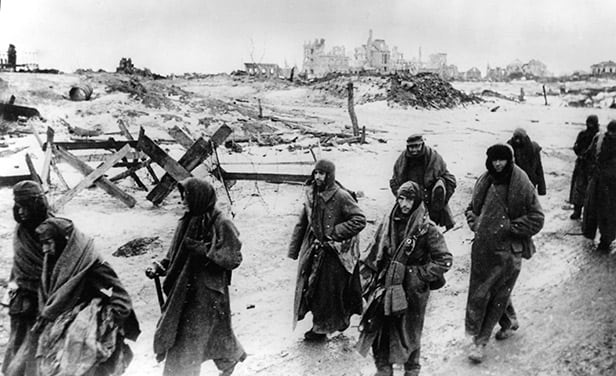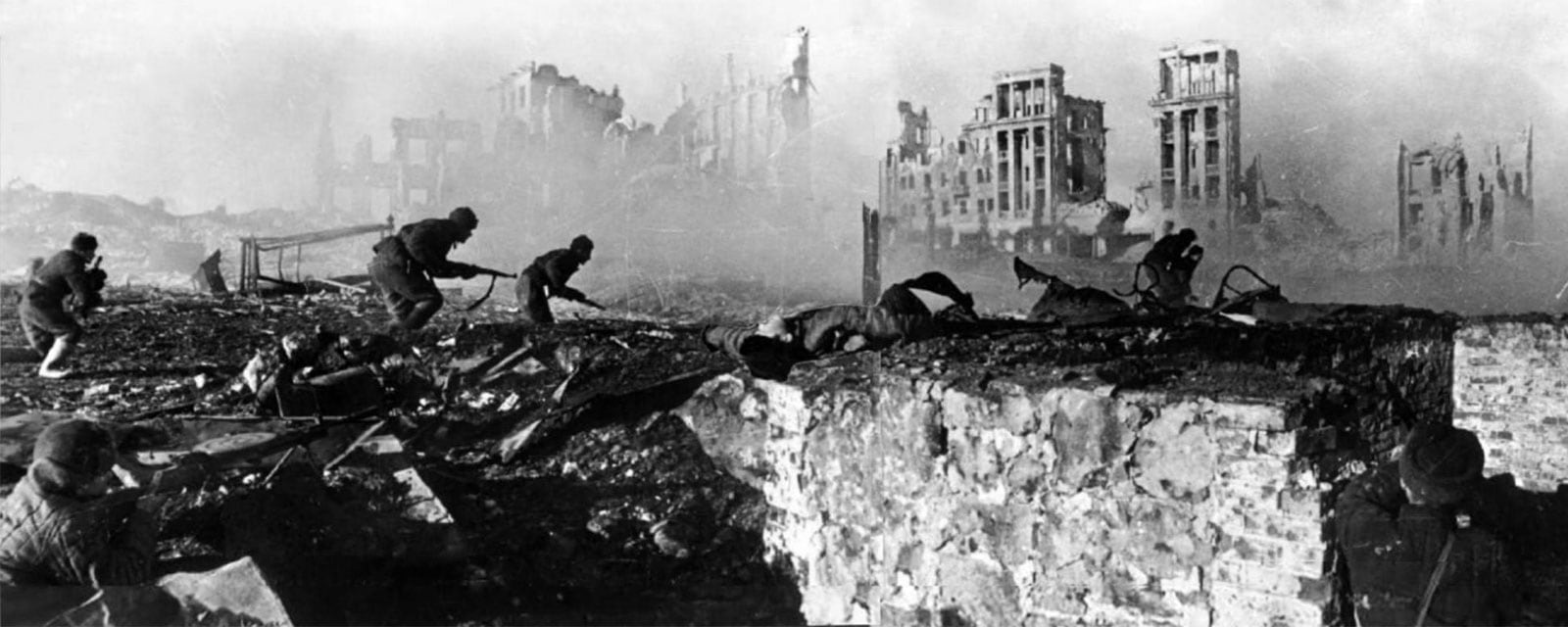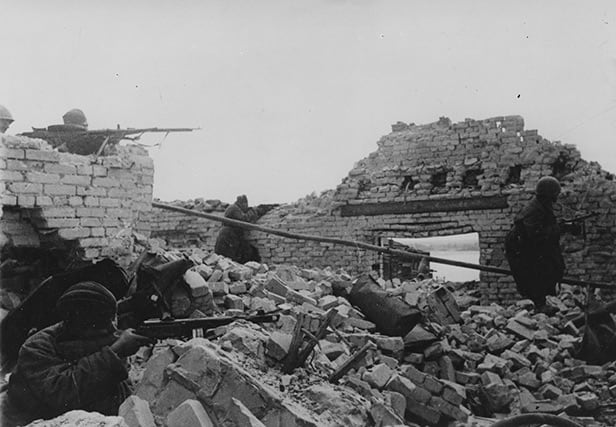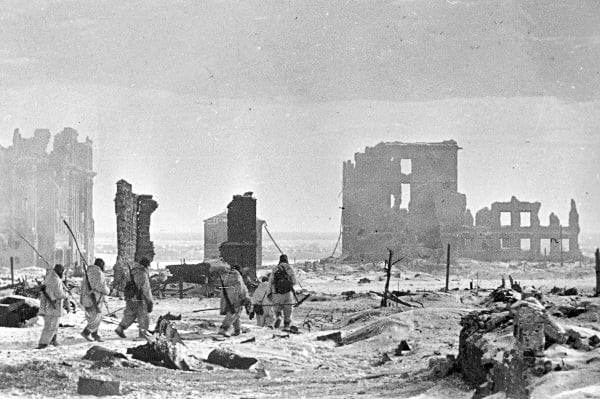Děkuji za článek. 
31.1.1943 - The Germans surrendered at Stalingrad
Categories: Second World War , Calendar
After a five-month battle that claimed nearly two million lives, Soviet troops regained control of Stalingrad on January 31, 1943, where German resistance collapsed. It was the turning point of the Second World War.
In late June 1942, German Army Group South launched an offensive in the Caucasus to capture the key oil fields of Baku, thereby crippling the Soviet war machine. At Hitler's insistence, the attack was also directed at Stalingrad, an important port on the Volga River. "While Army Group A was advancing on the Caucasus, Army Group B of Friedrich Paulus's 6th Army and Hermann Hoth's 4th Panzer Army was heading for Stalingrad," R. G. Grant describes in Battles: 5000 Years of Warfare.
The defence of Stalingrad was in the hands of the 62nd Army led by Vasily Chuikov, then a young officer with no experience. The Nazis attacked furiously from 13 September and pushed the enemy as far as the western side of the Volga. But the Soviet army did not give up and fought for every building. "Every night they carried food supplies and transported reinforcements across the Volga, even though the artillery fire did not weaken," Grant further noted.
Hitler declared that he would never leave the city. The houses gradually became ruins that served as fortifications. Even Stalin, who ordered the army to hold Stalingrad at all costs, refused to surrender. Tens of thousands of Russian women who fought in the front lines also joined the fighting. Both leaders were particularly aware of the symbolic significance of the city bearing Stalin's name.
A second onslaught in October brought the Germans to within two hundred yards of the Volga, and in November they reached the riverbank. But the Soviet army under Chuikov continued to resist. Meanwhile, Zhukov used the Germans' efforts to capture Stalingrad to encircle them. And on November 19, 1942, he launched Operation Uranus. He attacked north and south of Stalingrad, "ramming" his way through Italian, Romanian and Hungarian troops fighting on the German side.
They managed to trap Paulus' army on November 23. Hitler decided to resupply via airlift, but the Luftwaffe's capacity was insufficient and the Germans began to starve in Stalingrad. At the same time, Zhukov's army managed to push forward during December and increasingly oppressed the Germans into the centre of the city, who were also suffering from frostbite due to the harsh winter. At the end of January the Red Army managed to capture the main German headquarters in Stalingrad and the Nazis capitulated, all resistance ended on 2 February 1943
Of the nearly 110,000 German prisoners captured in Stalingrad, only about 5,000 returned home. The rest, already weakened by malnutrition and cold, perished on death marches, in labor or prison camps, or during transport.




Sources: www.bt.com, R. G. Grant: The Battles - 5000 Years of Warfare, www.britannica.com, https://origins.osu.edu/
The article is included in categories:




